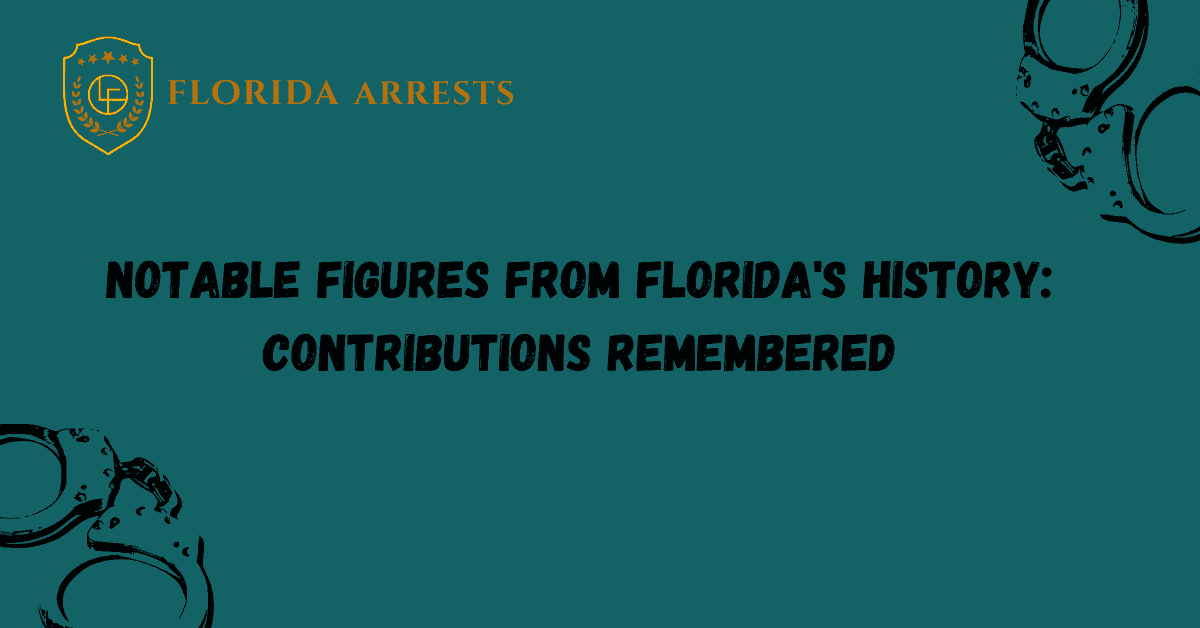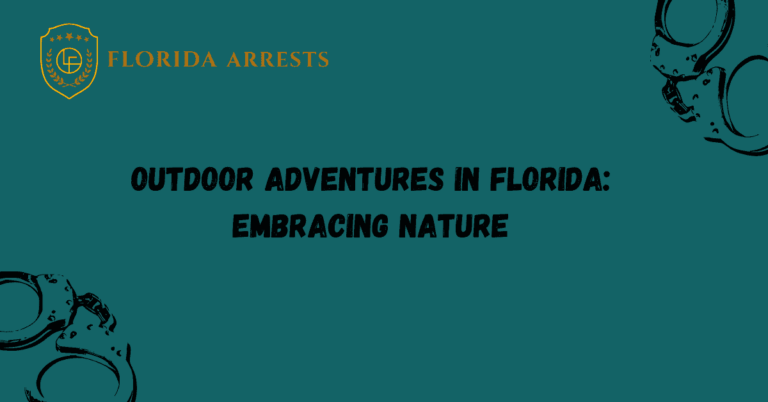Notable Figures from Florida’s History: Contributions Remembered
Florida has a rich and diverse history, filled with notable figures who have made significant contributions to the state and beyond. From political leaders to social activists, Florida has produced individuals who have left a lasting impact on society.
One such figure is Marjory Stoneman Douglas, an environmentalist and writer who dedicated her life to the preservation of the Florida Everglades. Her book, “The Everglades: River of Grass,” brought attention to the importance of this unique ecosystem and helped pave the way for its protection.
Marjory Stoneman Douglas’s Early Life and Education
Marjory Stoneman Douglas was born on April 7, 1890, in Minneapolis, Minnesota. She grew up in a family that valued education and learning, which greatly influenced her future endeavors. Douglas attended Wellesley College, where she studied English and graduated with honors in 1912.
The Beginnings of Environmental Activism
After college, Douglas moved to Miami, Florida, in 1915, where she began her career as a journalist. She quickly became involved in environmental issues, particularly the preservation of the Florida Everglades. In 1917, she joined the fight against the draining and development of the Everglades, a project that threatened to destroy the unique ecosystem.
The Impact of The Everglades: River of Grass
In 1947, Marjory Stoneman Douglas published her seminal work, “The Everglades: River of Grass.” This book provided a comprehensive and passionate exploration of the history, ecology, and importance of the Everglades. Douglas’s vivid descriptions and extensive research brought attention to the beauty and fragility of this unique ecosystem.
Advocacy and Political Influence
In addition to her writing, Marjory Stoneman Douglas was actively involved in advocacy and politics. She co-founded the Friends of the Everglades in 1969, an organization dedicated to preserving and restoring the Everglades. Through her tireless efforts, she became a prominent figure in the fight for environmental conservation.
Recognition and Legacy
Marjory Stoneman Douglas’s contributions to environmentalism and her dedication to the preservation of the Everglades did not go unnoticed. In 1993, she was awarded the Presidential Medal of Freedom, the highest civilian honor in the United States. She continued to advocate for the protection of the Everglades until her death on May 14, 1998, at the age of 10
Continuing the Fight for Preservation
Today, Marjory Stoneman Douglas’s legacy lives on through the work of organizations like the Marjory Stoneman Douglas Foundation. The foundation continues to advocate for the protection of the Everglades and raises awareness about the importance of environmental conservation.
FAQs
Who are some notable figures from Florida’s history?
Florida has been home to many notable figures throughout its history. Some of these include Henry Flagler, who played a crucial role in the development of Florida’s east coast and the expansion of the Florida East Coast Railway. Another notable figure is Marjory Stoneman Douglas, an environmentalist and writer who fought for the preservation of the Everglades. Zora Neale Hurston, an influential writer and anthropologist, also hailed from Florida and made significant contributions to American literature.
What contributions are these notable figures remembered for?
Henry Flagler is remembered for his efforts in developing Florida’s tourism industry and bringing economic prosperity to the state. His construction of luxury hotels and railway infrastructure helped establish Florida as a popular destination. Marjory Stoneman Douglas is remembered for her advocacy in preserving and restoring the Everglades, which led to the establishment of Everglades National Park. Zora Neale Hurston is remembered for her literary works, particularly her novel “Their Eyes Were Watching God,” which explored themes of race, gender, and identity in the African American experience.
How did Henry Flagler contribute to the development of Florida’s east coast?
Henry Flagler played a pivotal role in the development of Florida’s east coast. He was instrumental in extending the Florida East Coast Railway southward, connecting major cities such as Jacksonville, Palm Beach, Miami, and Key West. This railway infrastructure facilitated transportation and trade, attracting tourists and investors to the region. Flagler’s construction of luxury hotels along the railway route also contributed to the growth of Florida’s tourism industry and the overall economic development of the east coast.
What impact did Marjory Stoneman Douglas have on the preservation of the Everglades?
Marjory Stoneman Douglas dedicated her life to advocating for the preservation and restoration of the Everglades. Through her influential book “The Everglades: River of Grass” and her activism, she brought attention to the environmental challenges facing the region. Her efforts were instrumental in shaping public opinion and policy, leading to the establishment of Everglades National Park and the implementation of conservation measures to protect this unique ecosystem. Douglas’ legacy is closely tied to the ongoing conservation efforts in the Everglades.
What are some notable literary works by Zora Neale Hurston?
Zora Neale Hurston is known for her contributions to American literature, particularly her novel “Their Eyes Were Watching God,” which is considered a masterpiece of African American literature. This novel explores the journey of the protagonist, Janie Crawford, as she navigates love, self-discovery, and societal expectations in the early 20th century. Hurston’s other notable works include “Mules and Men,” a collection of African American folklore, and “Dust Tracks on a Road,” an autobiography detailing her own experiences growing up in Florida and her career as an anthropologist and writer.
How did Zora Neale Hurston influence American literature?
Zora Neale Hurston made significant contributions to American literature through her unique storytelling style and exploration of African American experiences. Her works captured the rich cultural heritage of African Americans and shed light on the complexities of race, gender, and identity. Hurston’s use of dialect, folklore, and vivid imagery added depth and authenticity to her narratives, making her a prominent figure in the Harlem Renaissance and a pioneer of African American literature. Her writings continue to inspire and resonate with readers today.
Conclusion
Marjory Stoneman Douglas’s dedication to the preservation of the Florida Everglades and her influential book, “The Everglades: River of Grass,” have had a lasting impact on society. Her efforts have brought attention to the importance of environmental conservation and inspired others to join the fight for the protection of our natural resources.







